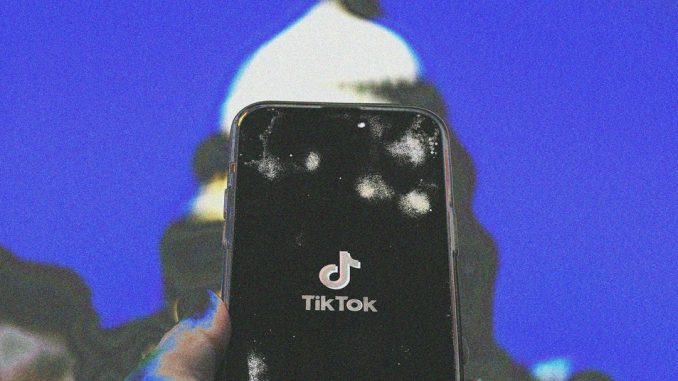
On Wednesday, President Joe Biden signed a law that could effectively ban TikTok if the company does not divest from ByteDance, its Chinese owner, in the next 12 months. But the law, which sped through the House and Senate, could face a significant uphill battle in US courts for potentially violating the First Amendment rights of both the company and its users.
In a statement, a TikTok spokesperson said “this unconstitutional law is a TikTok ban, and we will challenge it in court. We believe the facts and the law are clearly on our side, and we will ultimately prevail.”
TikTok has argued that prior attempts to ban the app ran afoul of the First Amendment. Last year, the state of Montana passed a TikTok ban that was blocked by a federal judge before it could go into effect. US District Judge Donald Molloy wrote that TikTok “had established a likelihood of irreparable harm” if the ban was enacted, both to the First Amendment rights of its users and to the ability of creators to make money.
Some experts say that the federal government could run into some of these same traps.
“Assuming the combination that the divestiture does not go through and the app is actually banned, that means that Americans who wish to access it cannot do so,” Nadine Farid Johnson, policy director at the Knight Institute, tells WIRED. Banning the app outright would go too far, Johnson says, and “wouldn’t be a tailored response that addresses the government’s stated concerns.”
“In all cases, I think that where this legislation is going to fail is that it’s burdening so much more speech than is necessary,” says Jenna Leventoff, senior policy counsel at the ACLU.
If TikTok or its creators were to sue the government for violating the First Amendment, experts believe they could make a solid argument. John Morris, a principal at the Internet Society, says that the case in Montana and a 2020 case brought by users of WeChat following a Trump administration executive order to ban the Chinese chat app provide a blueprint for how the courts may view TikTok’s legal challenge.
“In that case, what appeared to be very relevant to the court was the fact that the WeChat platform was a critical platform for communications of the users of WeChat, and they really didn’t have a good alternative,” Morris says. “If you’re looking at TikTok, many of the users of TikTok also predominantly use that platform to interact with other people.”
In both the WeChat case and the Montana case, both the companies and their users were parties to the case, meaning that both “speakers” and “listeners” were claiming that their speech had been violated.
TikTok has found itself in the crosshairs of US regulations for several years due to concerns about surveillance by the Chinese government. In 2020, former president Donald Trump issued an executive order to ban the app, calling it a threat to the “the national security, foreign policy, and economy of the United States.” In 2023, Democratic senator Mark Warner introduced the Restrict Act, which would allow the office of the commerce secretary to review and ban certain apps. Lawmakers have expressed concern that TikTok could be spying on its US users on behalf of the Chinese government due to a law that allows the Chinese government to compel companies, organizations, and individuals to work with the state on matters of national intelligence.
Hannah Bloch-Wehba, a professor at Texas A&M School of Law, says that there are still clear First Amendment implications of the law. The order to sell “is not an area that we typically see litigated directly in a lot of free speech cases,” she says. “I think traditional modes of thinking about how we categorize different kinds of speech regulations are not very well adapted to the TikTok kind of circumstance.”
But Bloch-Wehba notes that courts can sometimes be more lenient in cases of national security, which has been a major concern for members of Congress, though legislators have not cited any previously unknown instances where the app posed a threat.
“This swift action, reportedly triggered by closed-door briefings from the Biden administration on alleged national security threats, not only robs the public of their right to effectively lobby their representatives but also potentially grants dangerous power to future presidents to ban social media applications based on opaque criteria,” says Willmary Escoto, US policy counsel at the digital rights nonprofit Access Now.
On top of the free-speech concerns, a divestiture could run amok of antitrust laws. Already, US-based tech giants have faced scrutiny over the power they wield over the tech industry. Recently, TikTok has evolved into one of Meta’s and Google’s greatest threats. These are some of the types of companies that could even afford such a sale.
Experts also say that despite language setting a timeframe for divestiture, the law equates to an outright ban. The Chinese government, which would have to approve the sale because the platform’s content recommendation algorithm is on the country’s export control list, has indicated that it would not allow the sale. “ByteDance has disclosed that it has no intention of selling,” says Kate Ruane, director of the Center for Democracy and Technology’s Free Expression Project. “And as a result, regardless of how long you give them to divest, if they do not want to sell, then functionally this will wind up being a ban.”
But perhaps most importantly, according to some experts, the law could inspire other governments to restrict or ban platforms, thereby chilling free speech around the world, not just in the US.
“It could backfire in a way that would be really unfortunate, particularly in the current climate of democracy around the globe,” says Johnson.
SOURCE: Wired

